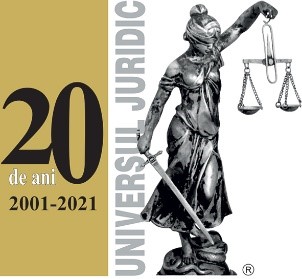Acţiunea oblică: o formă atipică de reprezentare?
i.neamt[at]yahoo.com
Cuvinte cheie:
derivative action, receivable right, representation, effects, res iudicataRezumat
Throughout its already secular history, the derivative action has been prevailingly examined by the doctrine by reference to its substantial particularities, as the procedural composition has been ignored or punctually considered. This approach also determined to shape a rather unclear and equivocal image regarding the legal nature of the action and its procedural regime, which has also resulted in a questionable case law at times in terms of legal certainty. That is why, in this study we intended to examine the derivative action from a double – substantive and procedural – perspective, for the purpose of identifying its legal nature and procedural regime.
To this end, first we tried to briefly describe the conditions and particularities of the derivative action, as resulting from the normative provisions, from the doctrine and case law, performing an overview of the issues that we have considered to be essential or controversial as regards the creditor’s receivable right, the rights and actions which may be exercised by derivative means, the debtor’s inactivity, the position of the third party debtor within the action and the effects of the action as regards the other creditors.
Thereafter, we showed the arguments for which the derivative action cannot be deemed as a form of direct action, of Paulian action or mandate and the reasons for which this cannot be classified even as a veritable autonomous action.
Finally, starting from the specificity items of the derivative action, especially from the fact that through its agency, the creditor does not exercise any right or own action, but the right or action of its debtor and that from the fact that the derivative action does not create any privilege to the creditor which has exercised it, we reached the conclusion that, actually, the derivative action is only a form of forced atypical legal representation. Only by conferring such a legal nature to the derivative action, its effects and particularities may be fully explained in procedural terms, without distorting other legal institutions.









